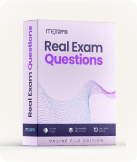Test Prep NCE - National Counselor Examination Exam
Page: 1 / 20
Total 100 questions
Question #1 (Topic: Human Growth and Development)
According to Piaget's stages of moral judgment, a child younger than age ten will think which of the following is worse?
A. Someone who was trying to help his mother set the table and broke five dishes.
B. Someone who was stealing a cookie from the cookie jar when he wasn't allowed, and knocked over a cup that broke.
C. Someone who did not control the dog who jumped up on the table and pulled down a glass full of water, which broke.
D. Someone who accidentally dropped a dinner knife which could have hurt someone if they would have stepped on it.
Answer: A
Question #2 (Topic: Human Growth and Development)
How many stages are there of moral reasoning, according to Kohlberg?
A. Two
B. Six
C. Eight, paralleling Erikson's stages of psycho-social development
D. None; Kohlberg's theory is on self-actualization
Answer: B
Question #3 (Topic: Human Growth and Development)
Which of the following is not a factor in the sleep patterns of adolescents?
A. Biorhythm changes
B. Defiance
C. Increased need for sleep
D. Increased academic and social demands
Answer: B
Question #4 (Topic: Human Growth and Development)
A college student viewing a situation as good or bad or right or wrong is using:
A. Dualistic Thinking
B. Pessimism
C. Relativistic Thinking
D. Erroneous Thinking
Answer: A
Question #5 (Topic: Human Growth and Development)
Which theorist believed in the zone of proximal development (ZPD)?
A. Piaget
B. Kohlberg
C. Vygotsky
D. Erickson
Answer: C
